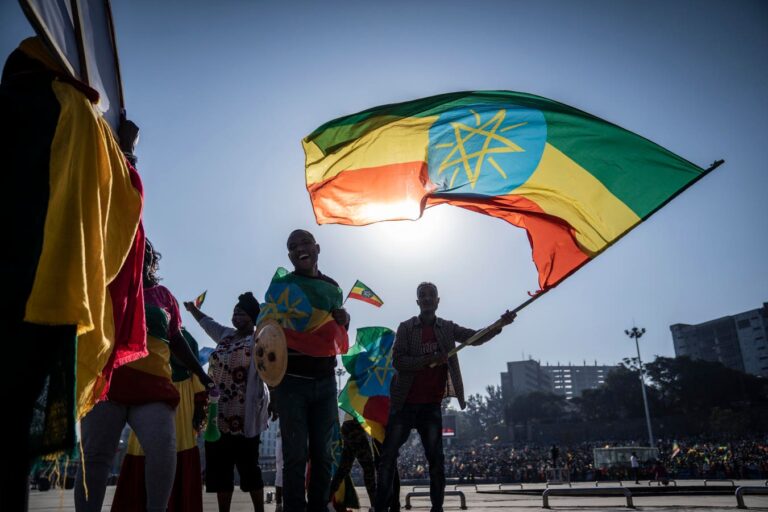Photo credit: Getty Images
Getty Images
Ethiopia plans to establish a $250 million Bitcoin mining and AI data center led by Russian Bitcoin mining company Bitcluster. The project marks a milestone in the country's journey to integrate cutting-edge technologies such as Bitcoin and artificial intelligence into its economic infrastructure.
Aiming to become a leader in the global digital economy, Ethiopia is leveraging renewable energy sources to drive advances in Bitcoin mining and AI development. Part of this ambitious initiative is Project Mano, a scheme aimed at harnessing Ethiopia's renewable energy resources. Its purpose is to serve as a blueprint for integrating these technologies into the Ethiopian economy.
The initiative includes the construction of a 120-megawatt, 30,000-square-meter facility adjacent to the Quirinto high-voltage substation in Addis Ababa. The facility is strategically located to take advantage of Ethiopia's vast renewable energy resources, primarily hydropower from the Grand Ethiopian Renaissance Dam, Africa's largest hydropower project. This sustainable approach ensures an uninterrupted power supply, which is essential for the energy-intensive process of Bitcoin mining, while also contributing to the country's environmental goals.
The facility's substantial capacity supports over 34,000 Antminer S21 200Th miners, increasing the hash rate of the entire Bitcoin network by a significant 6.8 EH/s, or approximately 1.2% of the hash rate of the entire Bitcoin network. This move highlights the growing focus on renewable energy in the Bitcoin mining sector. This highlights the geographic diversification of mining operations into areas that offer both climate benefits and renewable energy sources.
This is seen as a game-changer for Ethiopia, in line with the country's broader aspirations to become a hub for innovation and sustainable development. By harnessing its renewable energy potential, Ethiopia aims to attract global attention and investment in the technology sector and create new opportunities for jobs, growth and development.
The choice of Ethiopia for this investment reflects the growing trend among Bitcoin miners to seek locations that offer cost-effective and sustainable energy solutions and a welcoming regulatory environment. ing.
As the Project Mano proposal highlights, Ethiopia's efforts to integrate Bitcoin mining into its economy could increase GDP by $2 billion to $4 billion annually. This strategic move has the potential to significantly strengthen the country's economy, strengthen its technological infrastructure, and position it as a leader in Bitcoin mining's clean energy-driven future.
This development represents a significant moment for Ethiopia, demonstrating its readiness to embrace the opportunities presented by blockchain technology and AI. As this project progresses, the world is certain to focus on Ethiopia's burgeoning technology industry and commitment to sustainable and innovative economic development.
follow me twitter Or LinkedIn.


